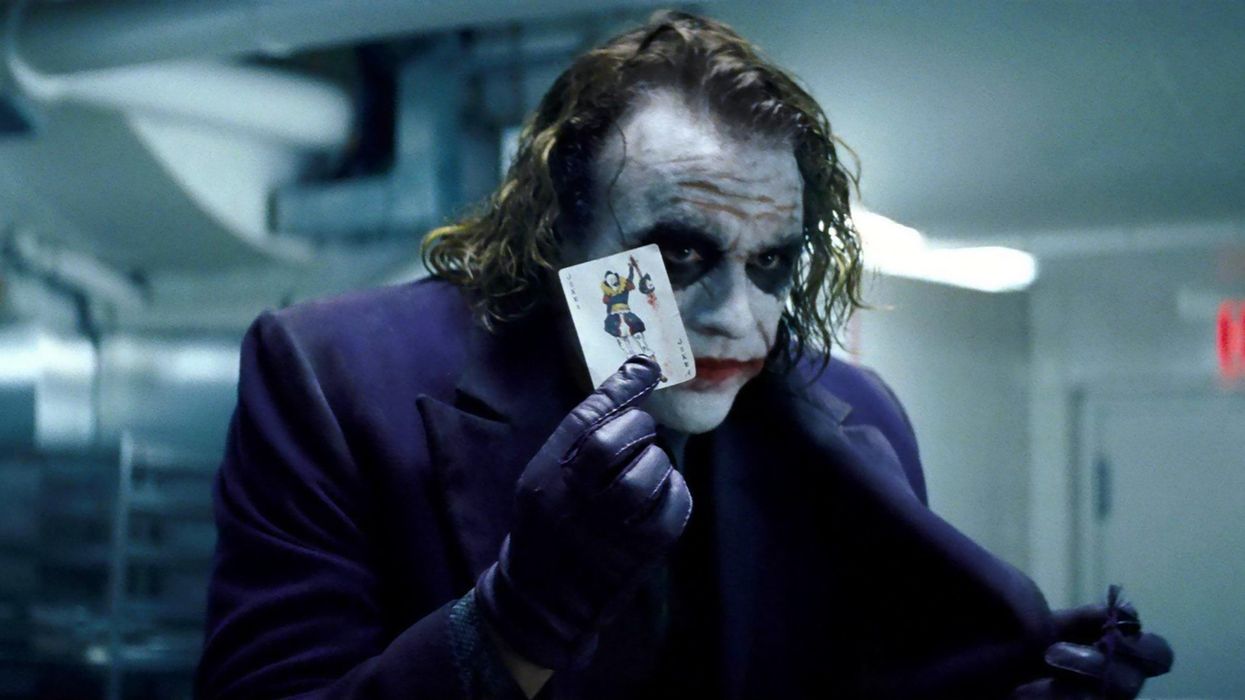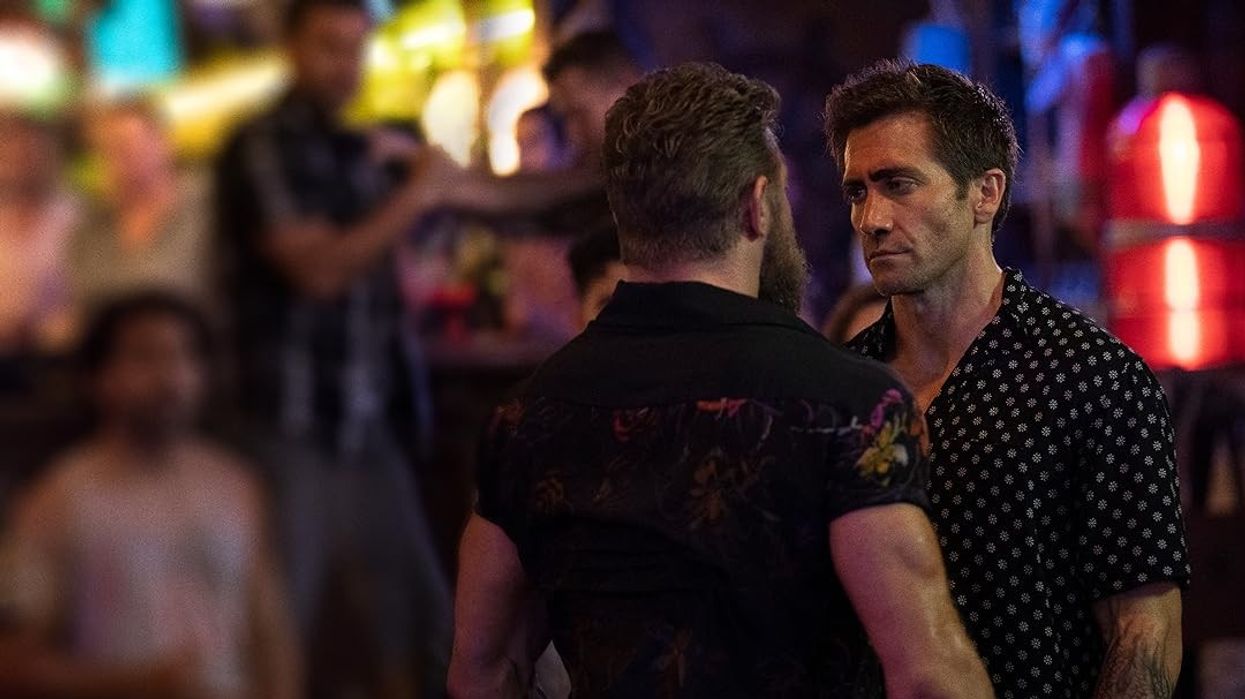Jennifer Salke, head of Amazon MGM Studios, said in a statement, “The groundbreaking, successful debut of Road House is a testament to the hard work and commitment from the entire Road House filmmaking team and the film’s cast led by the phenomenal Jake Gyllenhaal.”
So we were pretty excited to hop on the phone with Pink and speak about her process on the film, what it takes to design for action, and get her advice on entering the field. Enjoy.
Road House - Official Trailer | Prime Videowww.youtube.com
Editor's note: The following conversation has been edited for length and clarity.
No Film School:I'd love to know where you started in terms of your collaboration with Doug Lyman?
Dayna Pink: Okay. Well, I met with Doug and I wasn't sure ... Because I've done sequels before, I've done films with the number two in them. And so I wasn't really sure if this was a number two, you know? And when I had a meeting with him, he was like, "Oh no, this is our own movie. We're starting over. This is our thing."
We didn't have to go back to something that someone else did, or refer to something, or do something that was a little retro. We got to really start from scratch, which is really cool. And then that way you get to create your own world, which is always really exciting for me. So I started with the idea that we could do whatever we wanted, which was always the most fun.
NFS: Mm-hmm. That's great. And then just generally, because costuming is so important to understanding of characters, what's your process for creating character through costume? How do you go about that?
Pink: I totally agree that the costume is so important because every single thing that we wear tells us something about ourselves. Where did we get it? What does it mean? Who gave it to us? Where do we buy it? How long have we had it? And it's what you're wearing and how you're wearing it. Is it dirty? Is it wrinkly? Is it buttoned up? Is it easy? Tucked in. Whatever.
So everything we wear and how we wear it says something about us. So yeah, everything down to the socks, down to the shoe laces, we choose it all, including background, including extras. We're super particular on what everybody that you see on the screen, that they're dressed the way that goes with the story that we're telling.
NFS: Mm-hmm. Do you make boards or what's your actual process?
Pink: Yeah, we do. We make boards, especially for background for scenes. We'll make a board of the people who are at the bar, a board of the people on the beach, so we have an idea of what the overall vibe is. But what was also really cool about working with Doug is he loves the background stuff as well, and the idea.
So at the bar, we got to create groups of people. So here's the spring breakers, here's the guys that work down the street, here's the beer drinkers. So we made tables of background people that felt like they would be there together, and why are they there, and who are they, which is always really fun as well.
NFS: I love that so much. And I was looking ... Even before I knew that I was going to be speaking with you, I loved just looking at characters and trying to figure out what's going on with them, and why are they in this scene and where did they come from.
Pink: Cool. Yeah. Yeah.
NFS: Yeah. And you've also worked up a lot ... Your work is very diverse, but you've done a lot of action too. So I would love to ask about what's unique about designing costumes for action?
Pink: I have done a lot of action. I don't know why that is either, but I just ... I'm not sure how that happened. But the thing about action is multiples, multiples, multiples, multiples, you just need so many of the same things. So you're not finding some cool vintage piece and you're using it, because it's going to get ruined.
There's going to be a stunt double, it's going to get torn. Someone's going to be another size. So it's like you have to have multiples of everything. So you're either buying something or that you can get a bunch of, or you're making it, which is my preference. I love making things because then you really get to tell a story by what they're wearing.
NFS: Mm-hmm. Yeah. And I was reading the press notes, and from what I could see there, a lot of it was all custom, all made?
Pink: Yeah.
NFS: Was that the majority or did you actually buy anything?
Pink: Well, the main characters, we made most of it, and then ... I couldn't make the whole movie, obviously. Which that sure would be fun, but ... Yeah. But the main, for Jake and for Connor, we made most of it. One pair of Connor's pants were, the bright magenta ones, those were purchased.
We bought every pair of those pants, every single ... They were Tom Ford pants, and we literally tried to buy every single pair that they made. We bought them in every size because we needed so many in so many different sizes. So for the stunt double, for Connor doing different actions, we just bought as many as we could find.
NFS: Yeah, that's awesome. In the initial pitch that I got, one of the things that was mentioned that you could discuss were Jake's pants, and I wanted to bring that up because I thought that was such a unique thing to note. And looking back at the pictures, I did notice that they were kind of a unique silhouette, so I wanted to ask about that as well.
Pink: Well, we did a whole fitting and sort of tried all these jeans on him, and we went with a couple pairs of jeans that were great that we really loved. But then there was just this pair of cotton pants that felt really modern to me and really current. And when he put them on, it just felt so unique and not exactly like what you'd normally see in an action movie.
But they were super modern and they looked great on him, and they felt like his character to us. And so we ended up using those a lot instead of just the jean that you would expect.
NFS: Yeah. I'll admit, I'm not super familiar with the world of UFC, but I watched the movie with my husband and he commented that Connor McGregor's clothing, it did feel like maybe he had just brought it from his own wardrobe. So I would just ask how involved was he in picking the outfits that you put him in?
Pink: I could tell if you almost know ... If you know him, but don't, then I could see why you would say that because there was a Connor vibe, because Connor's a peacock, right? And so was Knox, he was a peacock, so they had that in common. But this was a little bit different for him, and we did make it, so it is ours and it wasn't his. You can tell your husband, that's for sure.
NFS: But did he have any input on what he vibed with, or?
Pink: Yes. I mean, he's so cool. He definitely came in wanting to know ... This was his first film, and he was so lovely and such a gentleman, and just wanted to be a part of how we do it. He didn't come in and try and make it the way that he wanted it. He was coming in and saying, "How do we do this? And how does this work?"
And he was completely open to all of our ideas. Yeah, so we did a fitting. We picked what we thought was the best and would work, and what Doug liked, and what was good for the character, and he was super supportive of it. No issues. He's such a cool, fun guy.
NFS: That's awesome. I do have kind of a larger question to sort of finish us off. For someone that wants to get into costume design, maybe as an aspiring costume designer, do you have any advice for them as to how they should go about that, maybe the path they should take?
Pink: Well, I think there's so many different ways that you can get there. I was a stylist first, so I did bands and music videos and commercials and all that first. And then I discovered what the difference is in costume design and storytelling. And so, I took that path, but you could certainly go to school for design and take that path.
You can come work in film and work your way up. You can be a PA and get in the union and be a costumer and work your way up. Be an assistant. There's so many different paths to it, and I don't know that one is better than the other. I think it just depends on what your passion is, you know? Is it in the tailoring and creation of it, or is it in ... You know, do you just like clothing and you want to be around clothing, and you kind of want to just be in the world, or do you like film and want to work on film?
There's so many different ways to do it.












